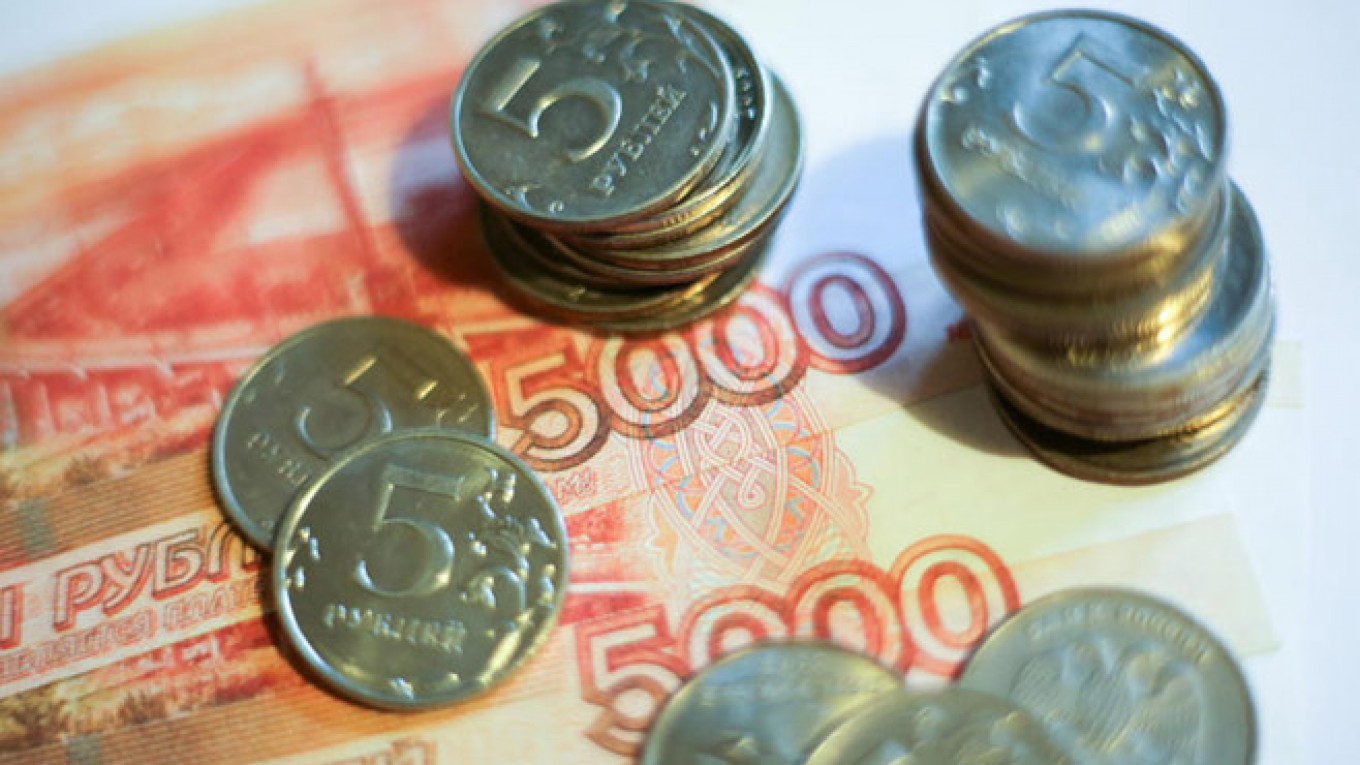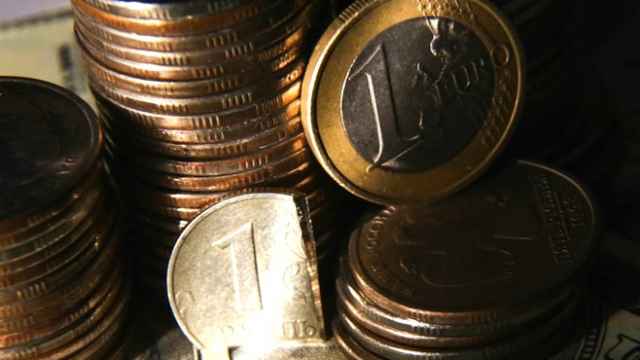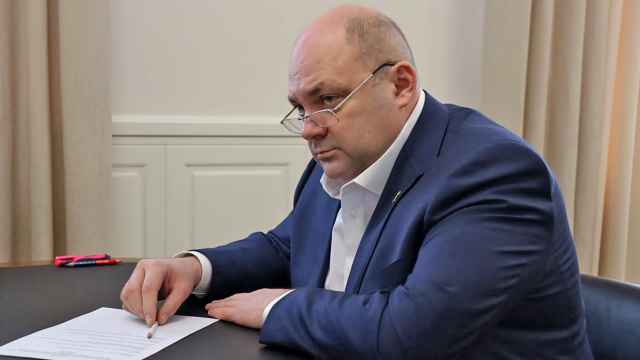The Russian currency continued a recent run of strength Thursday, taking the ruble to fresh 2015 highs, as warnings multiplied that the gains were unjustified and could be reversed at any moment.
The ruble rose 3.5 percent to 51.8 against the U.S. dollar in mid-afternoon in Moscow, before paring gains to about 52.2 against the dollar by 8:30 p.m. Against the euro the ruble gained 4 percent to around 55.5.
The upward swing took the ruble's onward march against the dollar to nearly 9 percent this week alone, and to 37.5 percent since a 2015 low in late January.
But current levels could be near a turning point, said Alexei Belkin, a portfolio manager at Finam, in a commentary for the RBC news website Thursday. "It's an interesting buying opportunity for people who are planning to purchase foreign currency for their summer holidays. I think that by June the dollar will be more expensive."
The Russian currency's rise is being driven by local demand for rubles from both companies and individuals and has been facilitated by a relatively steady oil price and an easing of tensions in eastern Ukraine, where a cease-fire between government forces and separatist fighters appears to be holding.
Government officials and state-owned television stations have hailed the ruble's strengthening as a healthy economic sign.
"Now we can say that the exchange rate is returning to its real value," Economic Development Minister Alexei Ulyukayev told deputies in the Russian parliament Wednesday, Russian news agency Interfax reported.
Unlike in December, when state-owned media devoted little air time to the ruble as it crashed to historic lows, state-owned channels have led their bulletins with reports on the ruble's rise, speculating that the gains could soon be passed on to consumers in the form of lower prices.
But a growing number of analysts are warning that the currency has become divorced from fundamentals and could suddenly go into reverse.
"We fully share the fears about the excessive strengthening of the ruble at the current oil price," ING's chief Russian economist Dmitry Polevoy wrote in a note to investors Thursday. The current mood was similar to the panic that helped contribute to the ruble's collapse in December, Polevoy added.
The ruble usually trades in sync with the price of oil, Russia's chief export commodity, but the currency continued its upward trajectory despite a sharp oil price fall Wednesday. Crude recovered slightly Thursday to about $56.5 a barrel.
"The ruble is now over-bought and its vigorous strengthening does not have a strong base in the fundamentals," Alexei Yegorov, an analyst at Promsvyazbank wrote in a note to investors published Thursday by RBC.
The recent rally comes on the heels of the currency's huge devaluation in 2014 when the ruble shed 41 percent of its value against the dollar. In December the ruble crashed to 80.1 against the greenback, its lowest level since the late 1990s.
Extreme volatility has become a hallmark of ruble trading since the Central Bank abandoned its targeted intervention policy — selling reserves to keep the currency within a certain value range — in November against a background of oil prices that were plunging downward from summer highs of $115 a barrel.
Analysts cautioned that any correction to the ruble could come without any advance warning.
The currency was "exposed to a sharp reversal," analysts at Sberbank wrote in a note to investors Thursday. "We do not yet see a solid potential trigger but warn that it may appear suddenly," they said.
Contact the author at h.amos@imedia.ru
A Message from The Moscow Times:
Dear readers,
We are facing unprecedented challenges. Russia's Prosecutor General's Office has designated The Moscow Times as an "undesirable" organization, criminalizing our work and putting our staff at risk of prosecution. This follows our earlier unjust labeling as a "foreign agent."
These actions are direct attempts to silence independent journalism in Russia. The authorities claim our work "discredits the decisions of the Russian leadership." We see things differently: we strive to provide accurate, unbiased reporting on Russia.
We, the journalists of The Moscow Times, refuse to be silenced. But to continue our work, we need your help.
Your support, no matter how small, makes a world of difference. If you can, please support us monthly starting from just $2. It's quick to set up, and every contribution makes a significant impact.
By supporting The Moscow Times, you're defending open, independent journalism in the face of repression. Thank you for standing with us.
Remind me later.







